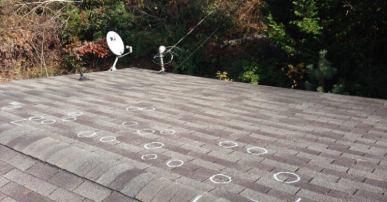
It Is 2022 And Appraisals Are All The Rage Again… But Watch Out For The Same Old Problems!!
I have handled bad faith insurance cases all of my 30 years as a trial lawyer, but predominantly started handling first-party property damage cases in 2005 after Hurricane Rita hit the Beaumont area. Since then, I have noticed certain claims handling trends are cyclical. They are popular…they die out…then they come back again as if they were brand new. I see this most in the area of appraisal. When I was handling Hurricane Rita cases from about 2006 to 2009, all the public adjusters and policyholder lawyers were invoking appraisal and the insurance companies resisted it fiercely. By the time I started handling Hurricane Ike cases from about 2009 to 2012 the roles had reversed. The carriers were routinely invoking appraisal, and those of us representing policyholders were resisting appraisal as much as we could.
There is another aspect of appraisal that I find amusing. Anytime I go to a roofer conference or public adjuster conference, there is always at least one or two folks there touting that they have a new way (or secret unique way) to go to appraisal and win every time. It sounds like an ad for one of those “no money down” real estate seminars (“…make millions of dollars for no money down.”). I find this amusing, not because I am pompous or smug, but because, no matter the cycles, appraisal is always the same. It is a fairly simple process, the procedures for which are set out in the insurance policy and, aside from a few tweaks of late, that procedure has been the same for years. There is no trick to appraisal. Like any process, it has its pros and its cons. I am the first to say that it is a very good avenue in certain claims (i.e. where causation and scope are fairly well admitted by the carrier and, for the most part, the only issue is pricing). However, appraisal is not, and has never, been some sort of secret panacea where policyholders can go to get paid full claim value every time.
Here is a typical appraisal clause from a State Farm policy:
Appraisal. If you and we disagree on the value of the property or the amount of loss, either may make a written demand for an appraisal of the loss. In this event, each party will select a competent and impartial appraiser. Each party will notify the other of the selected appraiser’s identity within 20 days after receipt of the written demand for an appraisal. The two appraisers will select an umpire. If the appraisers cannot agree upon an umpire within 15 days, either may request that selection be made by a judge of a court having jurisdiction. The appraisers will state separately the value of the property and amount of loss. If they fail to agree, they will submit their differences to the umpire. A decision agreed to by any two will be binding. Each party will:
- Pay its chosen appraiser; and
- Bear the other expenses of the appraisal and umpire equally.
If we submit to an appraisal, we will still retain our right to deny the claim.
That last sentence (the one in bold) has been standard in appraisal clause for years. It can make appraisal very unfair to the policyholder. Because of that sentence, the carrier can have its cake and eat it too. The carrier can agree to appraisal with little risk. Why? If the award comes back low or to the carrier’s liking, the carrier can accept it, and pay it, and the policyholder is done. All the policyholder’s legal causes of action are gone. There is no breach of contract, no bad faith, and no attorney fees. If there is any interest owed under the Texas Prompt Payment of Claims Act (“TPPCA”), it will be so small that the carrier will compute it and pay that too.
People like to talk about Barbara Technologies[1], which is a great case for policyholders, who have been fighting the claim for a year or two, and then the carrier jumps up and invokes appraisal. Because of Barbara Technologies, if that happens, the carrier will be on the hook for TPPCA interest and attorney fees. Another awesome case for policyholders when carriers invoke appraisal late in the process is Hinojos v. State Farm Lloyds[2], a federal case Chad T. Wilson won for all policyholders and their representatives. Hinojos took Barbara Technologies a step further by holding that even if the carrier makes a partial payment on the claim and then invokes appraisal and pays the claim, the carrier remains liable for Section 542 damages (including attorney fees) because the carrier did not pay the full amount of damages within the time limits in Section 542.
Barbara Technologies and Hinojos are great cases when the carrier invokes appraisal after a lawsuit has been filed (years after the first notice of loss), but people forget that Ortiz[3] was decided by the Texas Supreme Court on the same day as Barbara Technologies. Ortiz upheld the longstanding law in Texas that when an insurance company pays an appraisal award all the policyholder’s causes of action (except maybe under the Texas Prompt Payment of Claims Act) are dead. Therefore, if the policyholder invoked appraisal early, but the award comes in low, and the carrier pays it, the policyholder is done. Neither Barbara Technologies nor Hinojos can save the policyholder in that scenario. Thus, appraisal can be a great tool for an insurance carrier to cheaply get out of a claim if the award turns out low. No snake oil can fix that.
Here is the kicker. If the award is in favor of the policyholder, or is more than the carrier wants to pay, the carrier can simply reject the award (as per the last sentence of the appraisal clause). What a deal! It reminds me of a childhood friend who would flip a coin with you and say, “Heads I win and tails you lose.” Again, there is no secret formula to making an insurance company pay an award it has rejected and refuses to pay. The only thing the policyholder can do is hire a lawyer, start all over again, and file suit. While refusal to pay the award might be good evidence of unfair claims handling practices, it comes at a heavy cost to the policyholder. Setting aside the fact that the appraisal was a waste of time, given typical fees for appraisers and umpires, the policyholder will be several thousand dollars in the hole before he or she ever hires a lawyer. There is no trick to get back wasted time and wasted money.
Finally, while it may not always be a problem, the appraisal award tends to set the ceiling on actual damages (at least that is what the carriers tend to argue). I have had cases that were appraised before I got hired, and the award was more than the carrier wanted to pay but was not really a fair amount for actual damages. (I could have proved more). However, because the award was done before I was hired, I was stuck with it. Again, there is no magic solution to fix this problem.
I will say again that there are some instances when appraisal is a good choice, but just like any other choice, one needs to look at the pros and cons and what is in the best interest of the policyholder. Also, as in real life, there are no “get rich quick” schemes that work in the area of appraisals. Watch out for anyone trying to sell you on the idea that there are.
–Patrick McGinnis, Insurance Claims Attorney for the Chad T. Wilson Law Firm.
[1] Barbara Technologies Corp. v. State Farm Lloyds, 589 S.W.3d 806 (Tex. 2019)
[2] 619 S.W.3d 651 (Tex. 2021)
[3] Ortiz v. State Farm Lloyds, 589 S.W.3d 127 (Tex. 2019)

